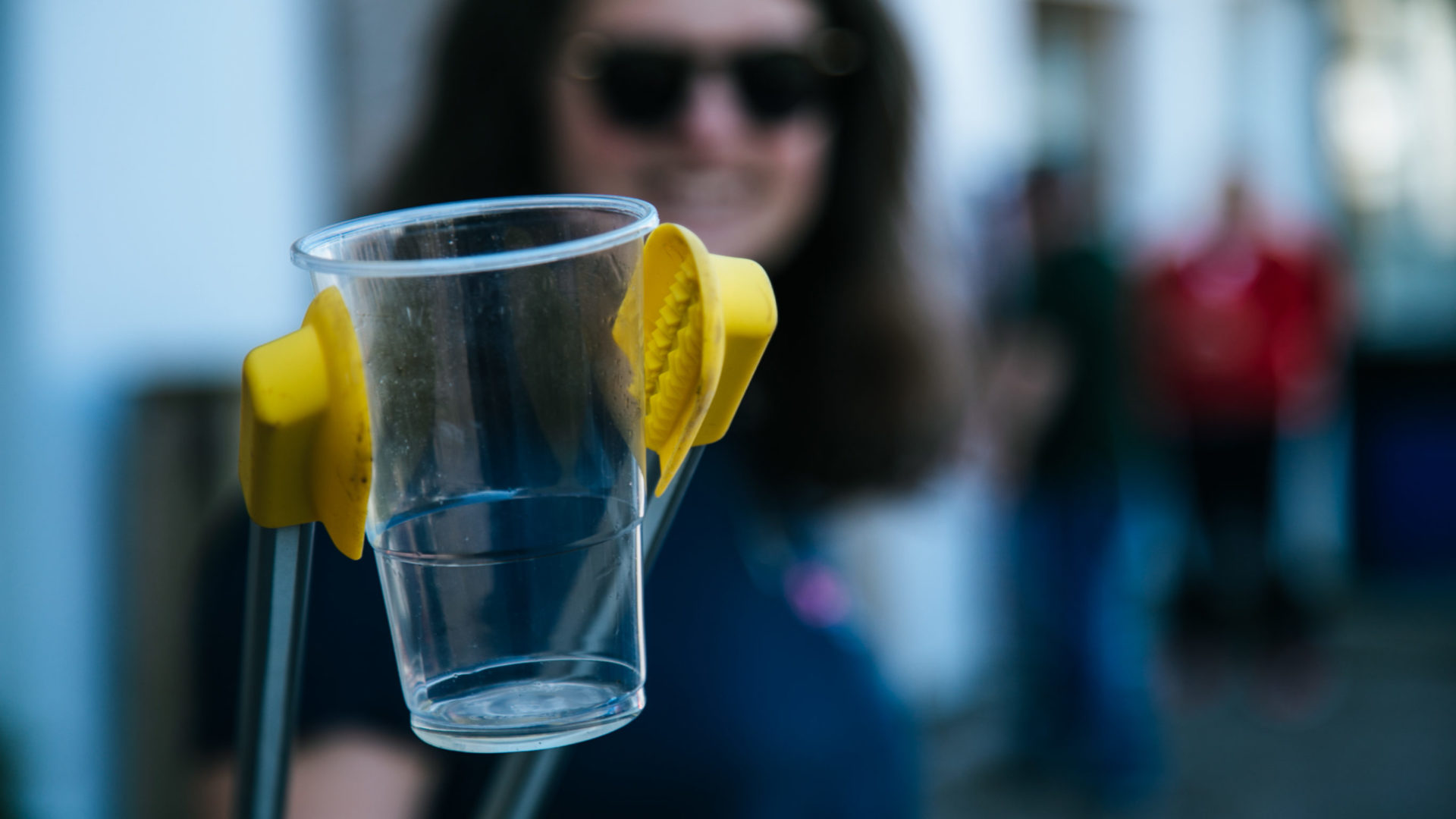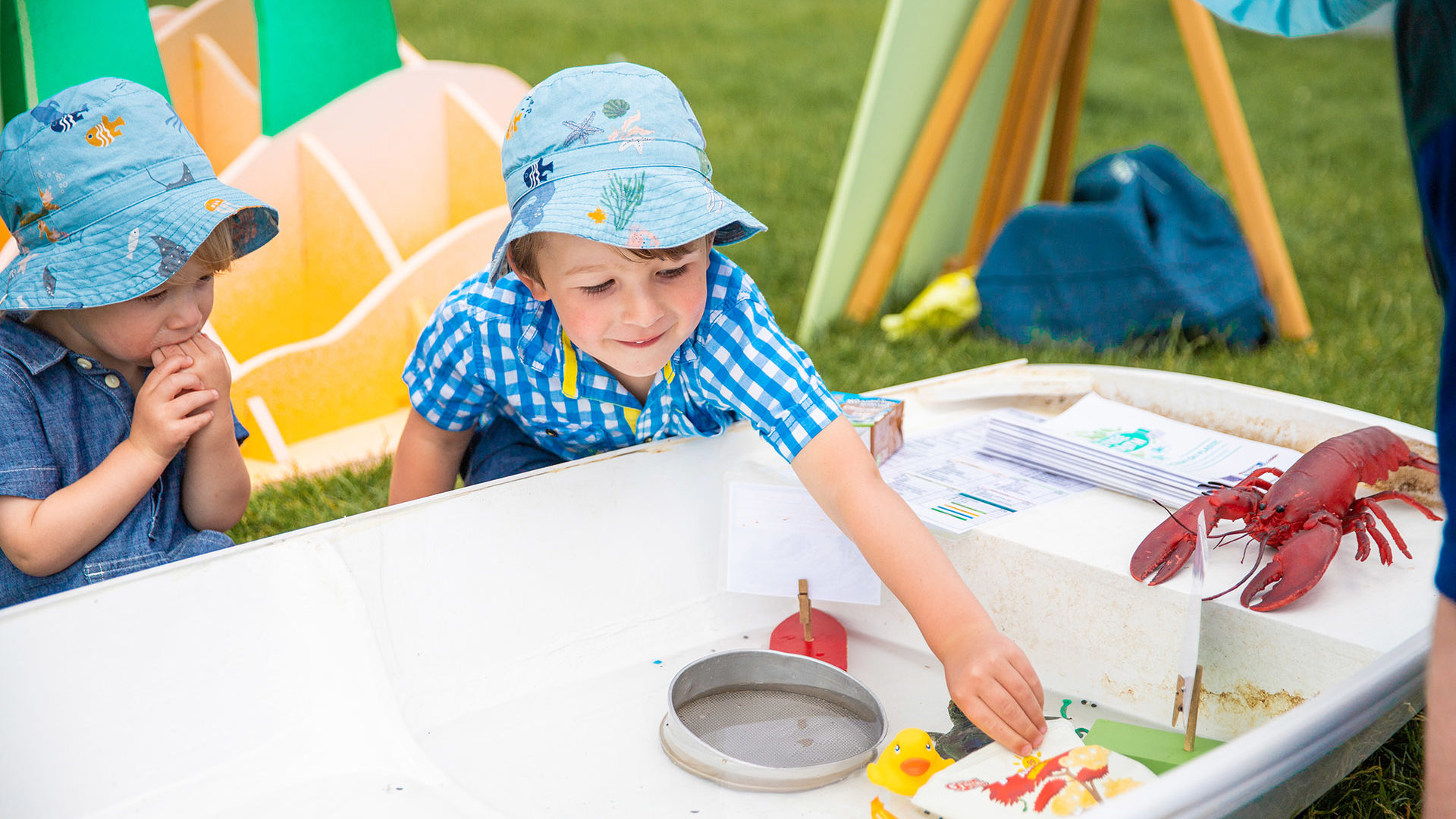By Eleanor Snape, MSc Marine Conservation graduate
During my year studying MSc Marine Conservation at the University of Plymouth, I was fortunate enough to carry out my final project with the Ocean Conservation Trust to research what people love about the Ocean and see whether this influences their pro-Ocean behaviours.
The health of the Ocean and marine environment is important now more than ever, and so is the understanding of how people’s emotions towards the Ocean influences their pro-Ocean and environmental behaviours. These ‘pro-Ocean behaviours’ are behaviours that are carried out by an individual to help minimise the negative impact of their actions on the Ocean, e.g: recycling plastic, taking part in beach cleans, or trying to reduce your carbon footprint in your daily life.

One of the main goals of the Ocean Conservation Trust is to connect as many people as possible to the Ocean, and what better place to do this than at an aquarium that is situated right on the shoreline of Plymouth’s very own National Marine Park in the Plymouth Sound. Connecting people to the Ocean is a vital step in the success of marine conservation, and through understanding what motivates people to care about the Ocean, we can create campaigns and opportunities to encourage more of the public to carry out essential pro-Ocean behaviours.
Based at the National Marine Aquarium, the hub of the Ocean Conservation Trust itself, I was tasked with surveying members of the public who were visiting the aquarium. Participants were guided through a quick two-part questionnaire; answering a plethora of questions from their favourite things about the Ocean to their thoughts and feelings towards Ocean health and environmental behaviour. The aim of this was to stimulate a deeper discussion about emotions and the Ocean, and see whether a connection could be drawn to help more individuals become ‘Ocean Literate’ in the future.
100 participants took part in this research project (both at the National Marine Aquarium and online). The span of this project reached locally from Plymouth all the way to New Zealand. As a lot of data was collected, here are some of the highlights.
- Which of these best describes how you feel about being in and around the Ocean?
When asked to reflect on how the Ocean makes them feel, 93% of participants felt positive emotions towards the Ocean – with happiness being the most common. 7% of participants felt negative emotions NOT towards the actual Ocean but to the current state of Ocean health and how we as humans treat our marine environment.
- What got you interested in the Ocean to begin with?
The top 3 things were ‘childhood memories and experiences from visits to the Ocean’ (81%), ‘nature TV shows and documentaries (42%), and ‘visiting an aquarium’ (39%).
- Do you think your feelings towards the Ocean influences your pro-Ocean behaviours?
86% of participants said yes, 5% said no, and the remaining 9% said they were unsure. The most reoccurring theme was having an ‘emotional connection’ with the Ocean and ‘wanting to be part of a positive change’. Other participants felt that their pro-Ocean behaviours weren’t necessarily driven by the Ocean specifically, but instead more of a ‘general desire to look after the whole environment’ because of their climate awareness.

Final thoughts…
This project was successful in finding out that an individual’s feelings about the Ocean does influence their pro-Ocean behaviours, whether intended specifically for the Ocean or just the environment in general. Hopefully these are the stepping stones that will lead to a wider discussion of how we can continue connecting people with our Ocean in any way possible so that they can develop an even stronger bond and emotional connection with it, especially those who do not have ready access to it.
We must also keep providing those magical moments that we got to experience, whether it is in or around the Ocean, for the future generations and that starts with us loving the Ocean and helping others to do so too.
Read more of our blogs and news
View allOur Second Limited Edition Plymouth Gin Bottle Launches!
17 Apr 2024We are delighted to continue our long-term partnership with Plymouth Gin, with the launch of our second limited edition gin bottle! Inspired by the sea and our innovative seagrass conservation work, the blue-tinted bottle, features swirling leaves of seagrass. The colour is baked into the glass and both the label and bottle are both made […]
Read MoreHelp us Seed the Change, 18th-25th April 2024
10 Apr 2024We are really excited as for the first year ever we’ve been offered an incredible opportunity to take part in the Big Give Green Match Fund campaign from the 18th-25th April! At the Ocean Conservation Trust we are working hard to protect, regenerate and restore seagrass at scale through our ambitious Blue Meadows programme. Seagrass […]
Read MoreMotion for the Ocean making waves as 25th council declares support
08 Mar 2024Our Motion for the Ocean is making waves for Ocean recovery in the UK as the 25th council declares support of the campaign! The Motion for the Ocean campaign has been appealing to councils across the UK to recognise the importance of the Ocean. Worthing Council has become the 25th council committed to improving the […]
Read More

